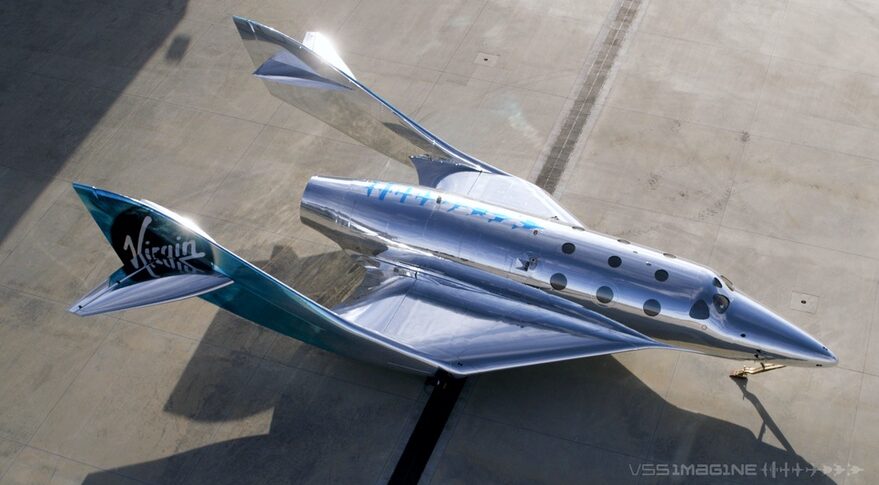
Virgin Galactic delays introduction of second suborbital spaceship (Image Credit: Space News)
WASHINGTON — Virgin Galactic’s second suborbital spaceplane won’t enter service in 2023 as previously planned because of demands on company personnel to both return the first spaceplane to flight and begin work on a next generation of vehicles.
In a Nov. 3 earnings call, Michael Colglazier, chief executive of Virgin Galactic, said the company was “prioritizing our resources” towards getting its SpaceShipTwo vehicle, VSS Unity, back into service in the second quarter of 2023 while ramping up design work on the Delta-class of vehicles slated to begin flights no earlier than late 2025.
Those efforts “will likely impact the pace of work on our second spaceship, VSS Imagine, and we are reassessing its schedule for entering commercial service,” he said. Later in the call, he ruled out having that vehicle ready before the end of next year. “We will not be in ’23 for commercial flights of Imagine.”
The company announced plans in March 2021 to develop VSS Imagine as the first of two “Spaceship III” vehicles, along with VSS Inspire. The vehicles look similar to VSS Unity but featured design improvements to reduce their weight, allowing them to fly six customers versus four on Unity, and enable a higher flight rate. At the time of the announcement, the company said flight tests of Imagine would begin later that summer.
However, work on Imagine has been delayed by efforts to complete flight testing of Unity and, then, after it carried company founder Richard Branson to space in July 2021, undergo an extensive refurbishment along with its WhiteKnightTwo carrier aircraft, VMS Eve. At the same time, the company has been devoting more resources to the design of the Delta-class spaceplanes and next-generation carrier aircraft.
In its previous earnings call in August, Virgin Galactic said it expected to have Imagine in commercial service by the fourth quarter of 2023, a delay from an earlier date of mid-2023. The company had already deferred work on the second vehicle, Inspire.
The delays, Colglazier said, are linked to demands on the company’s most experienced engineers, who are working on Unity and Eve or on Delta-class design work. “They require not just engineers, they require the engineers with the most history with our existing ships, and that is a limited resource,” he said. “We need to make sure we focus those deeply experienced engineers on those two things.”
The schedule for getting Imagine into service, he said, will depend on the progress the company makes on those other efforts and “how quickly we’re able to pull people back” to Imagine.
While the long-term effort at Virgin Galactic is on building a fleet of Delta-class vehicles, Imagine is important in the medium term for generating revenue. Imagine, capable of carrying six people and flying twice a month, will carry three times as many people per month as Unity, which can fly four people once a month.
Colglazier said the company remained on schedule to resume commercial flights of Unity in the second quarter of 2023. Work on the spaceplane itself is complete, he said, while upgrades to Eve are due to be completed later this quarter at a company facility in Mojave, California. Eve will be ready to return to flight by early January and return to Spaceport America in New Mexico shortly thereafter.
Once Eve returns to the spaceport, it will support a glide flight by Unity, followed by a powered test flight with company personnel on board. It will then conduct a flight for the Italian Air Force before starting flights of private astronauts in the second quarter of 2023.
Virgin Galactic has “closed our efforts on sales” on its initial set of 1,000 seats, after transferring some to a travel agency, Virtuoso, to sell and reserving some for research. The company announced Nov. 3 an agreement with commercial space station developer Axiom Space to fly a microgravity research and training mission tentatively scheduled for 2023, training an Axiom astronaut for a later orbital mission.
Colglazer said that he expected the company would reopen ticket sales after Unity begins commercial flights next year. He added, though, that the company has a backlog of customers “pushing towards four years.”
Virgin Galactic reported a net loss in the third quarter of $146 million, with revenue of $767,000. The company has $1.1 billion in cash and equivalents on hand as of the end of the third quarter.








